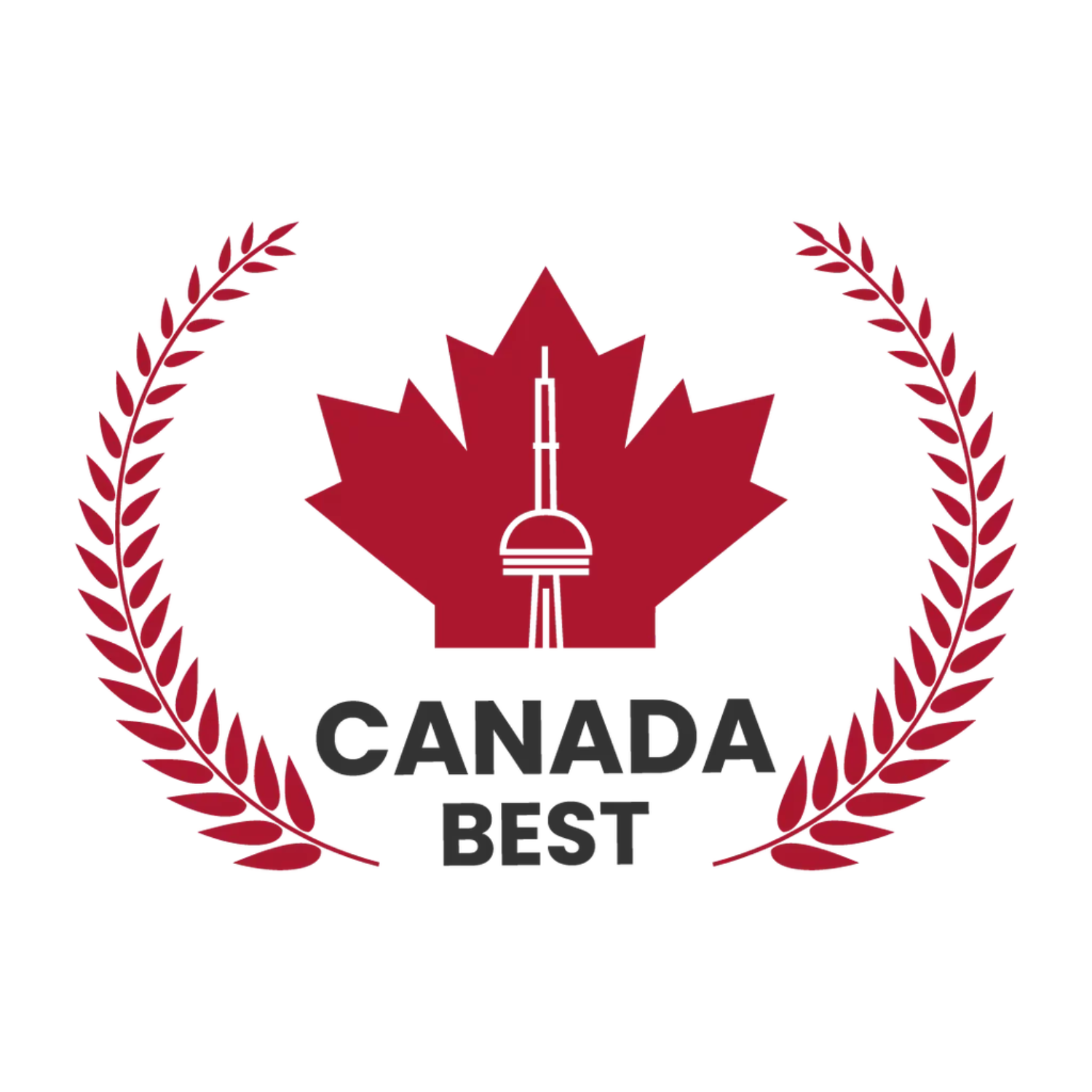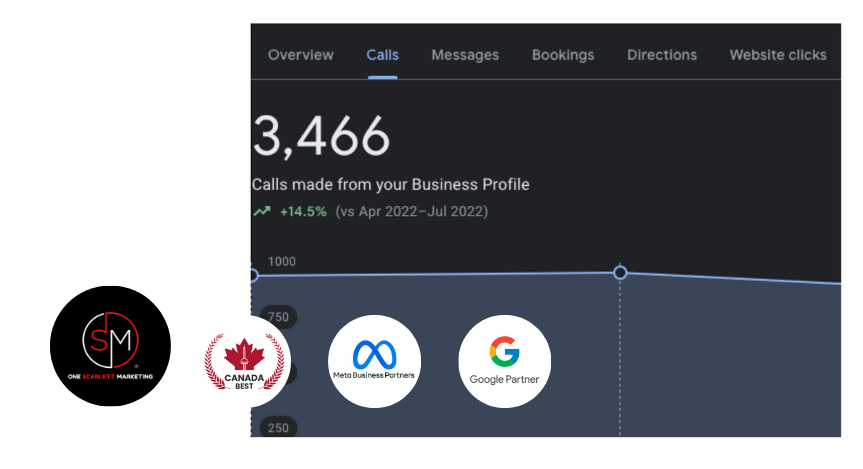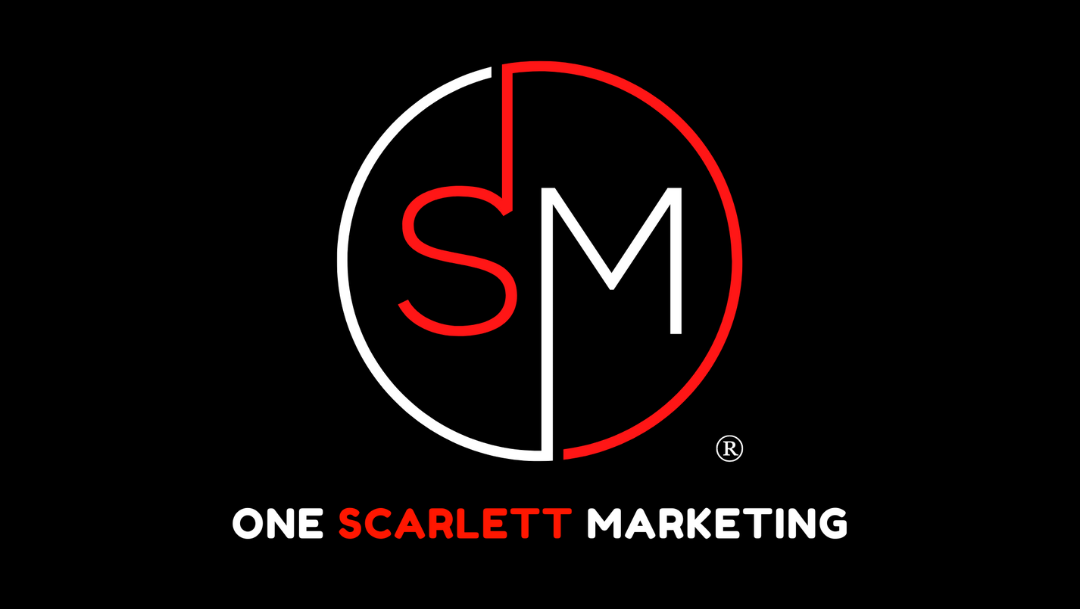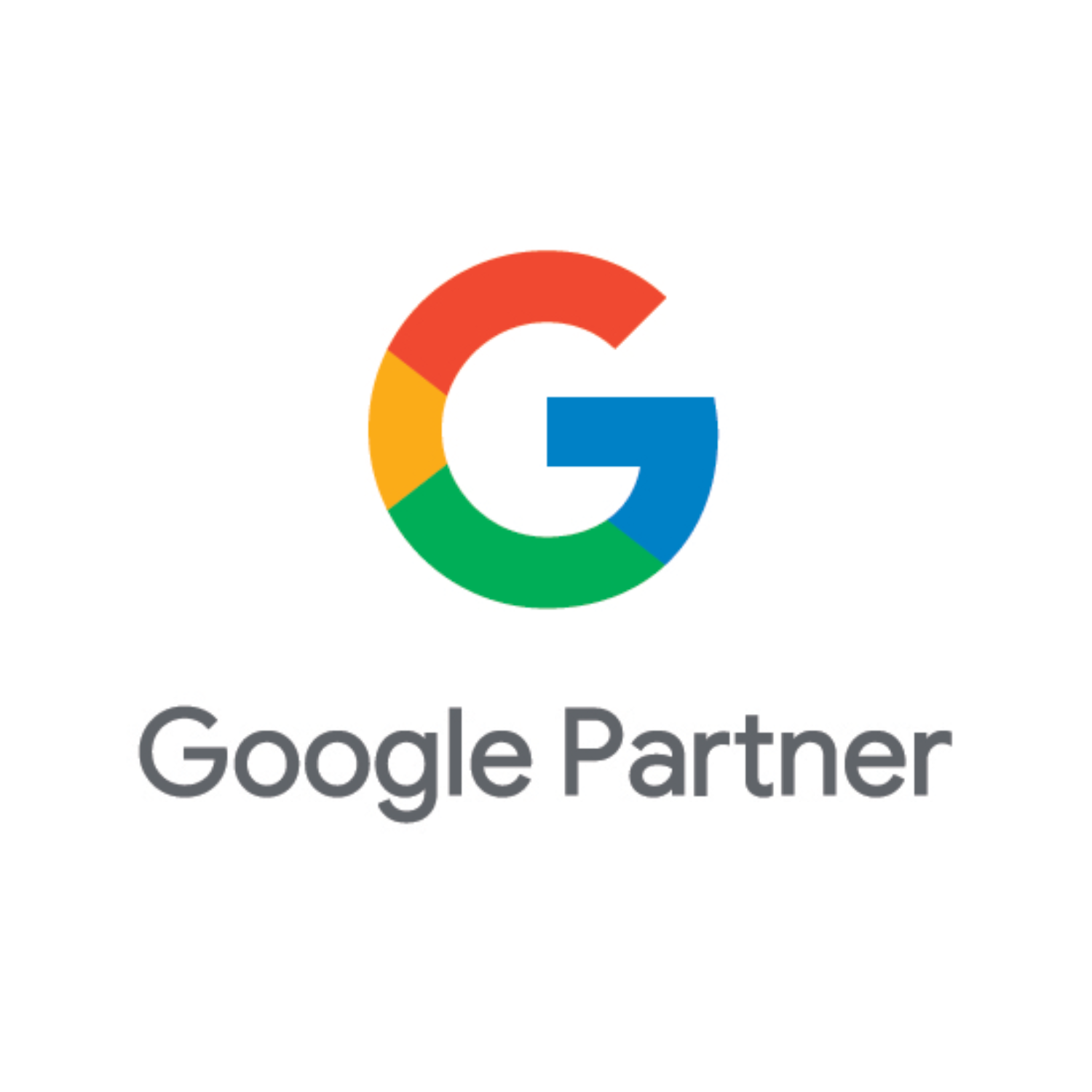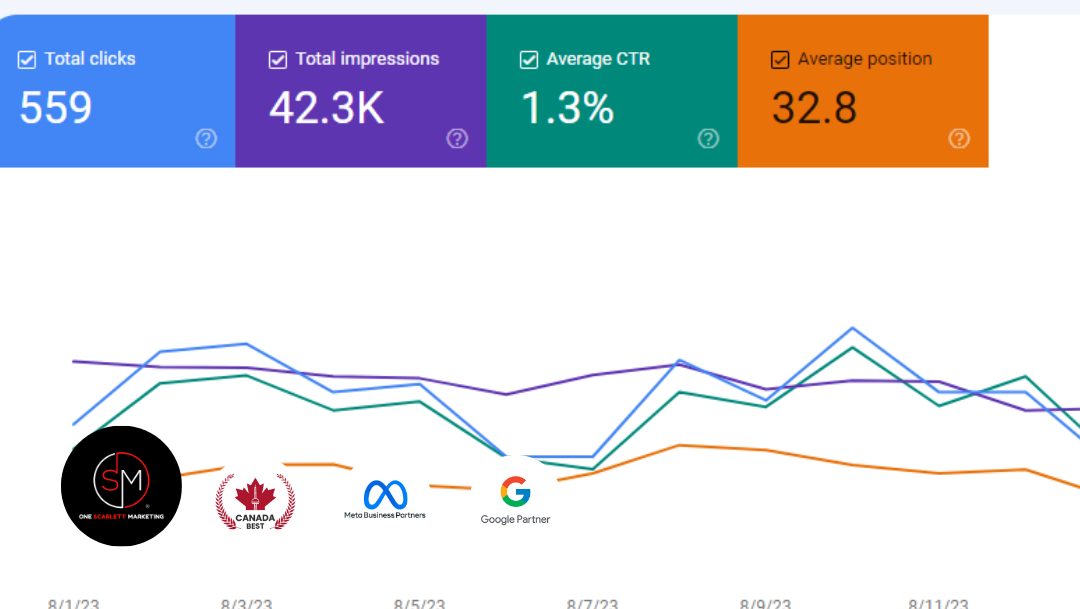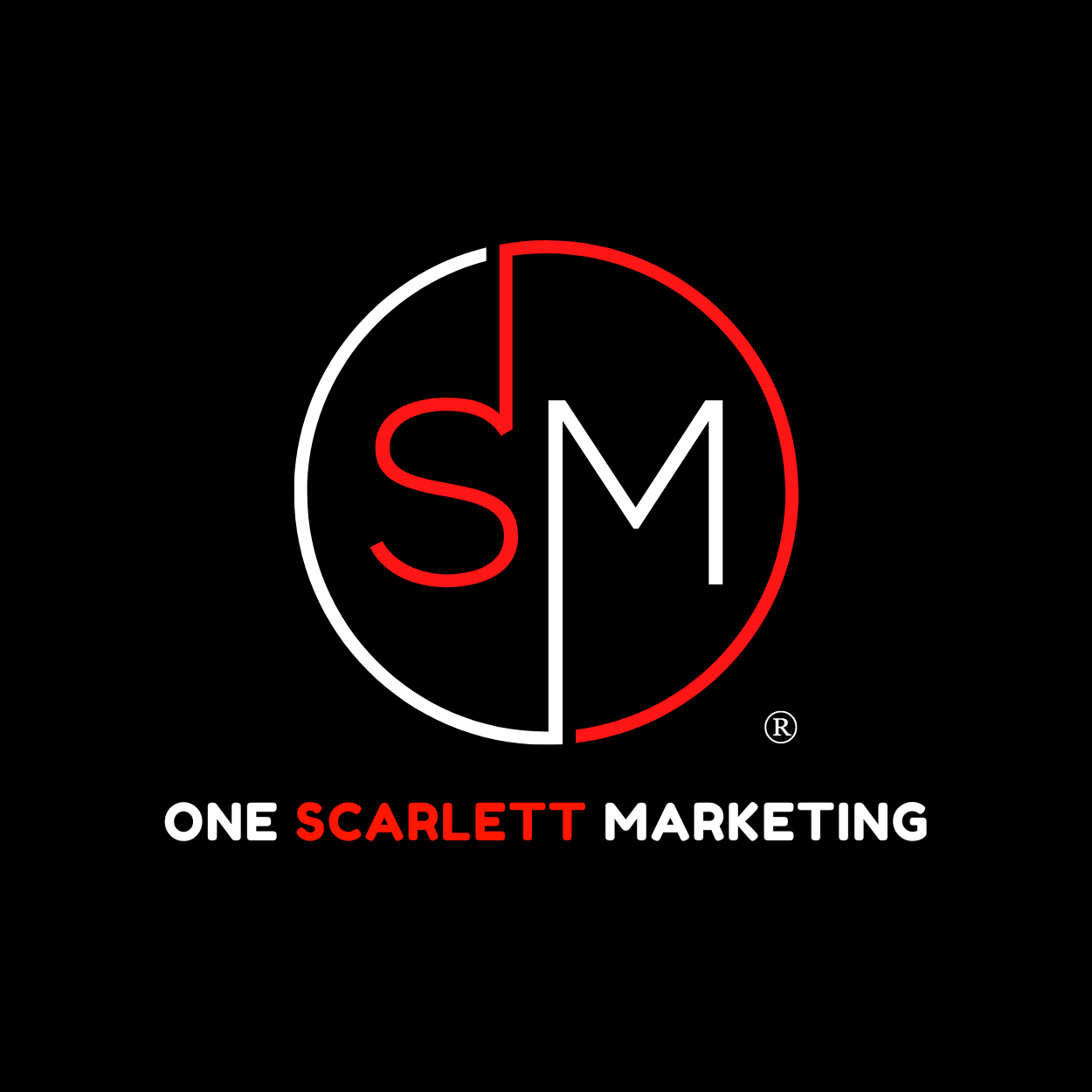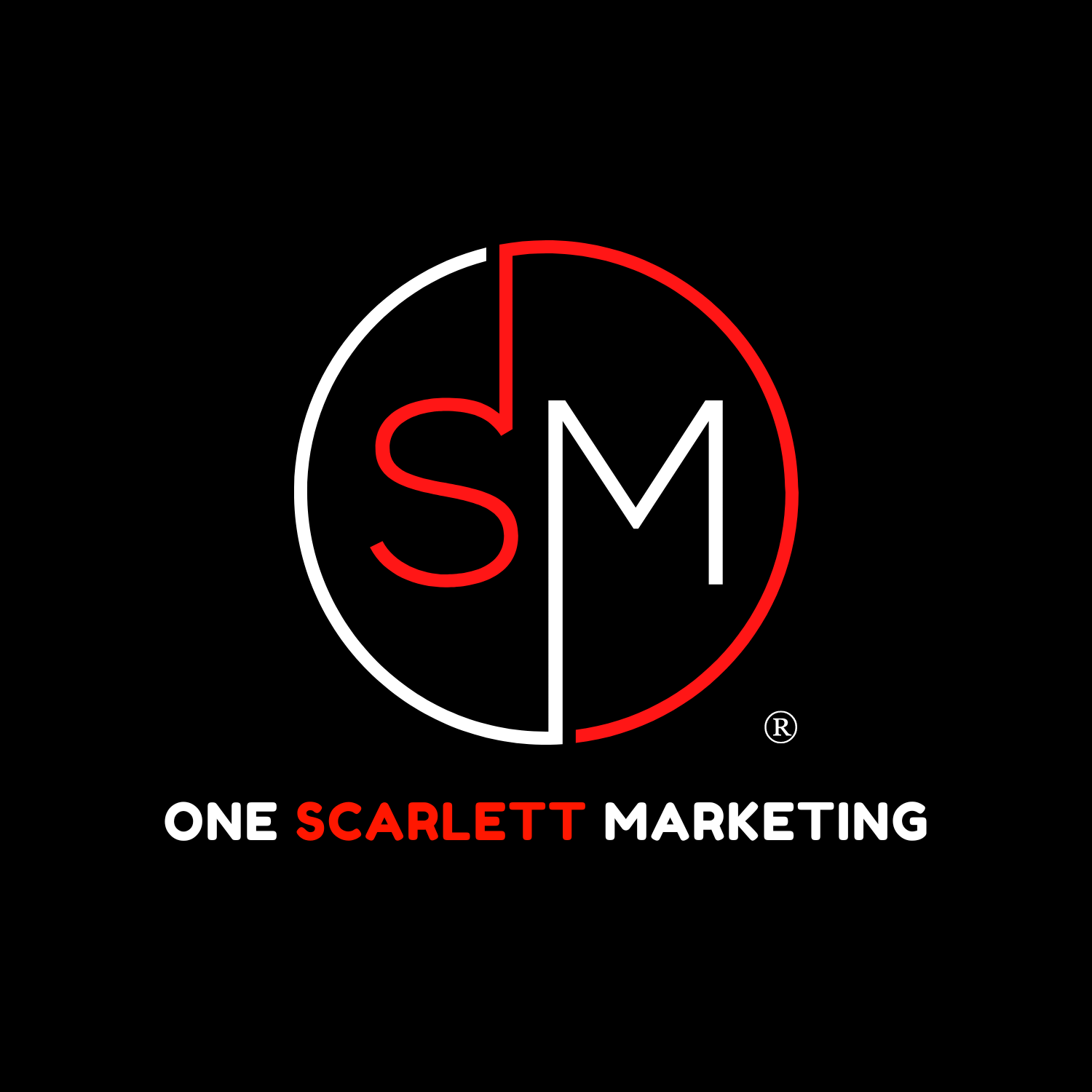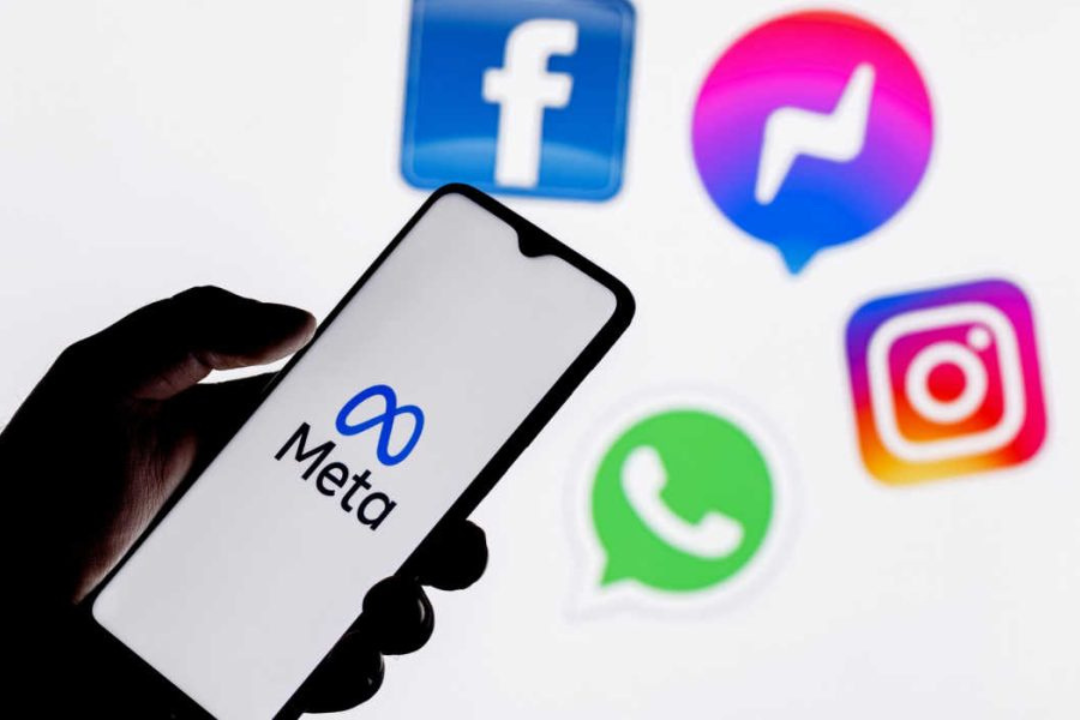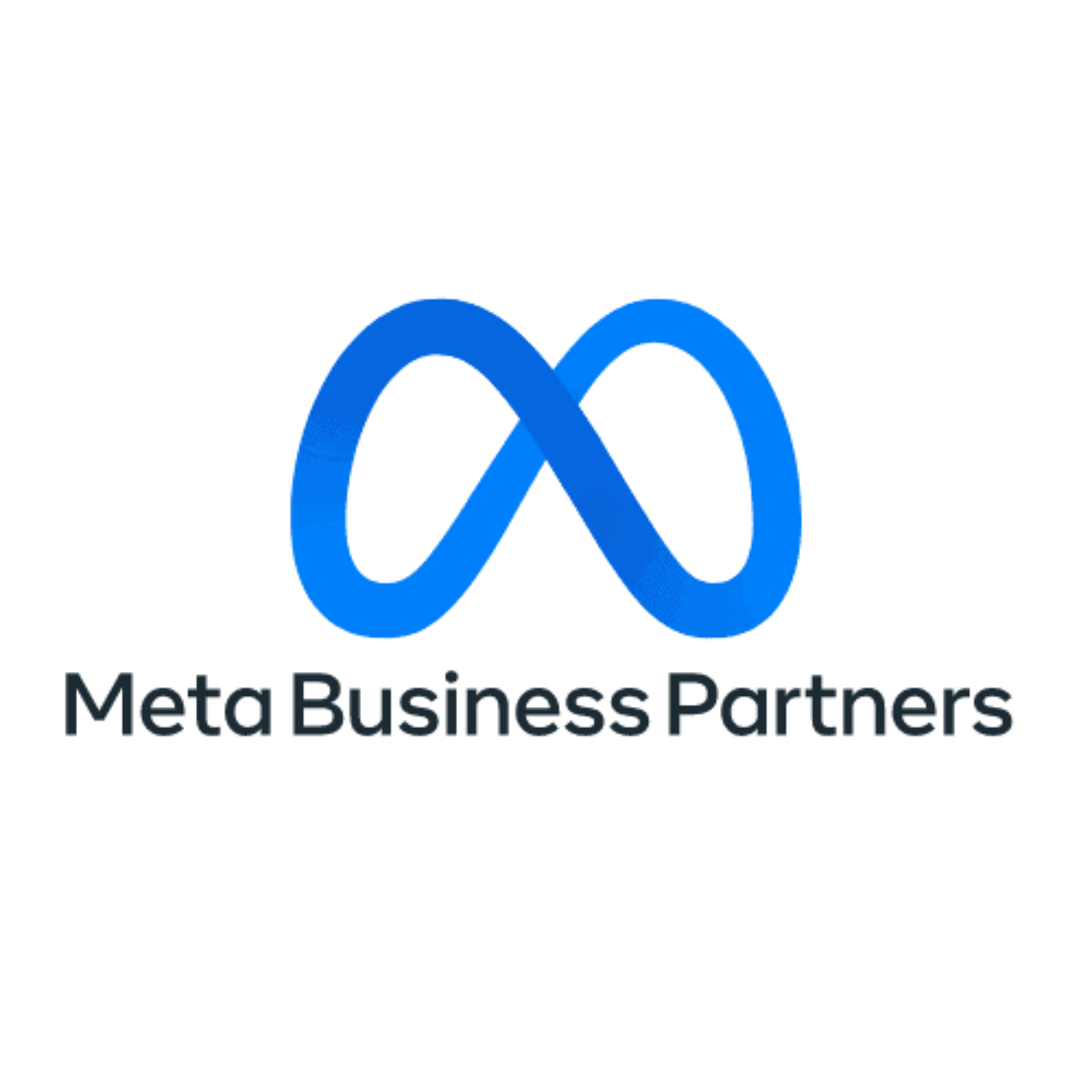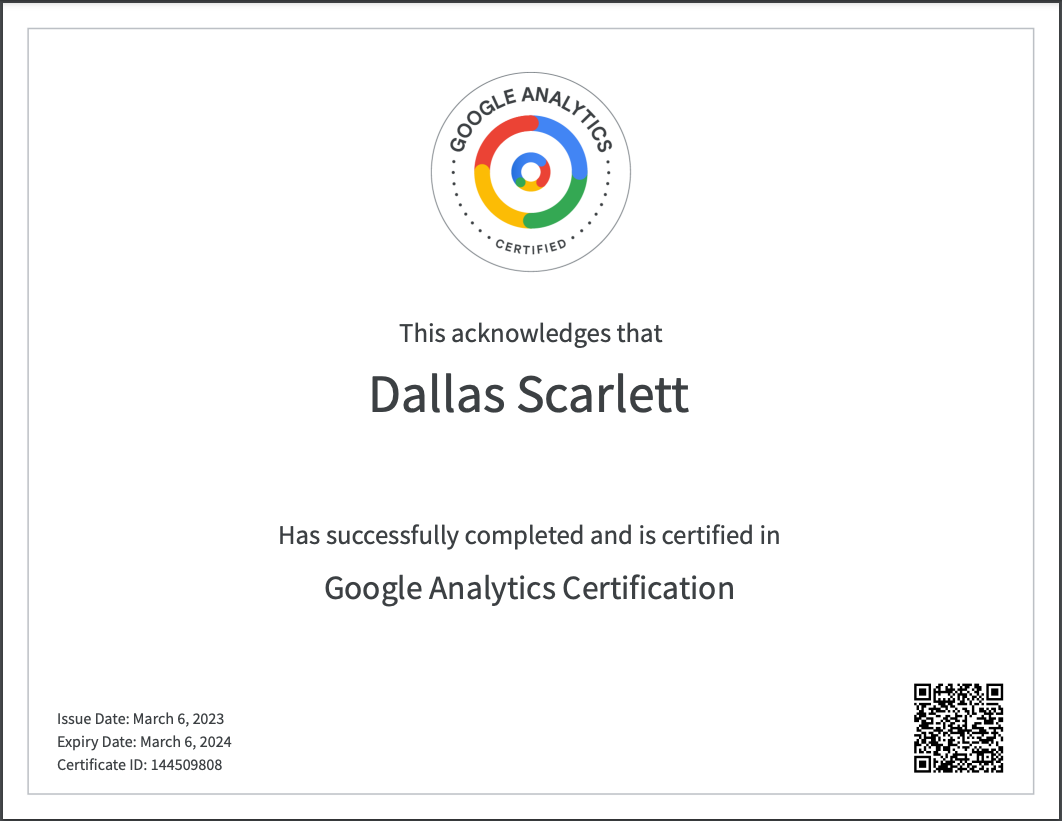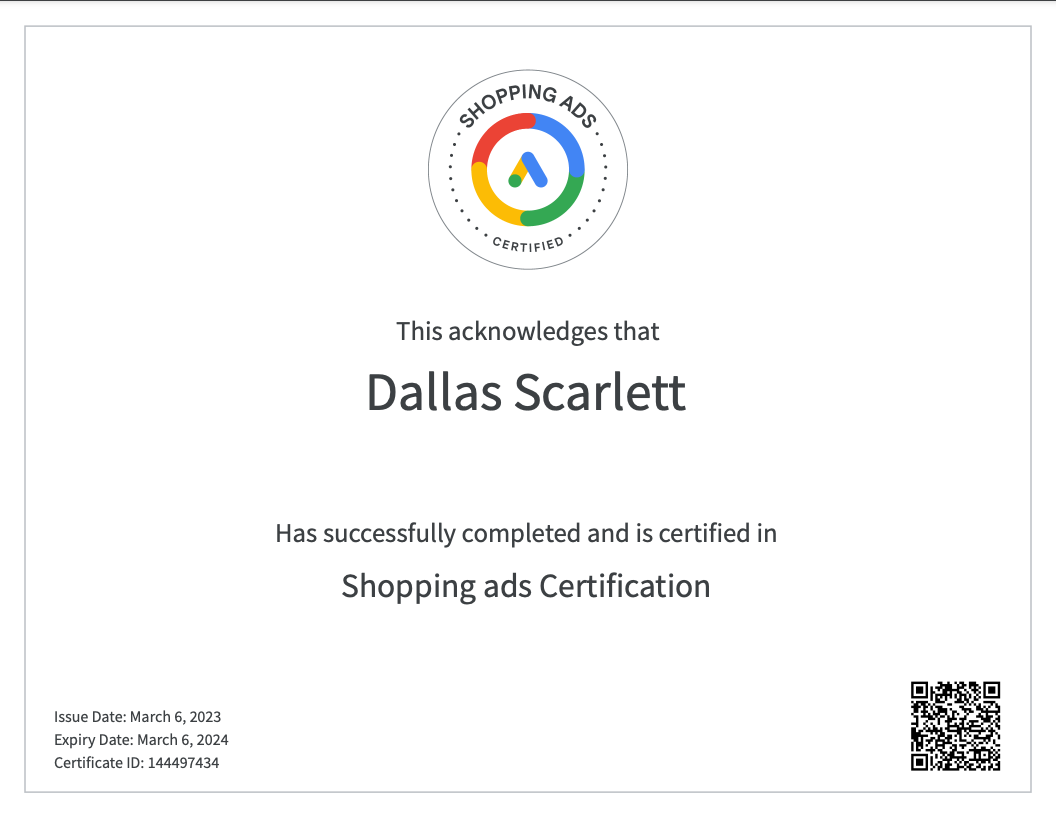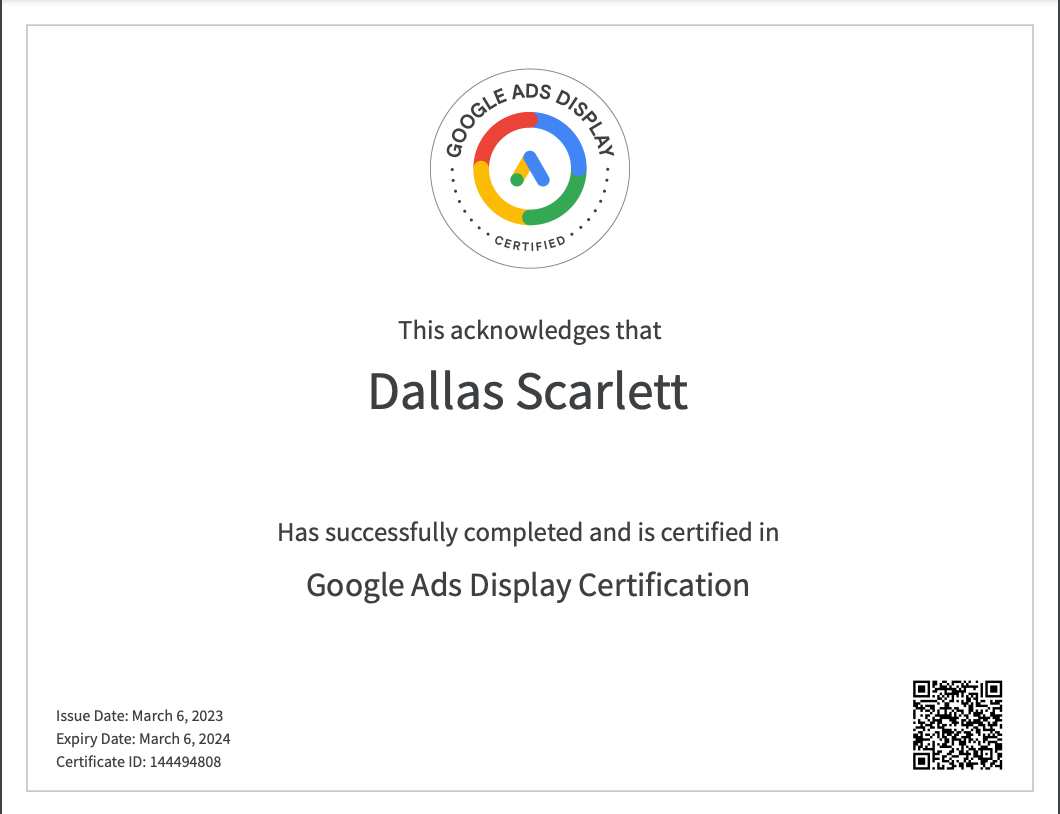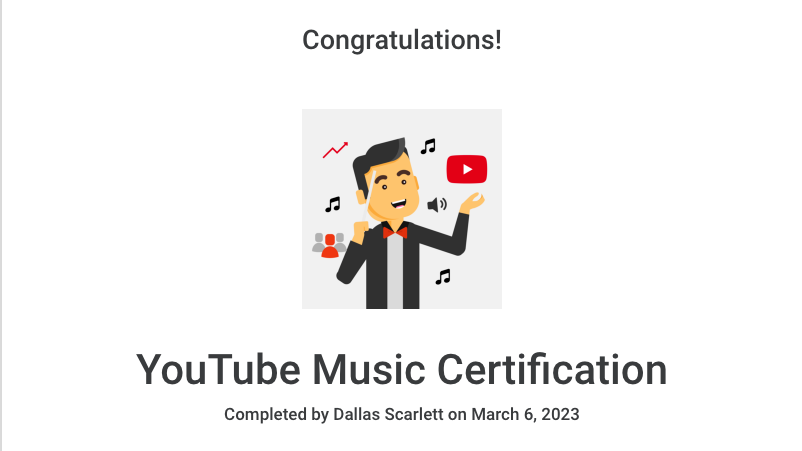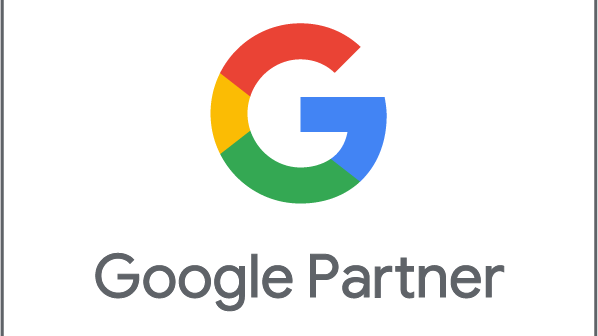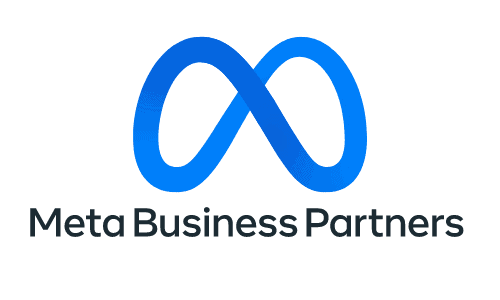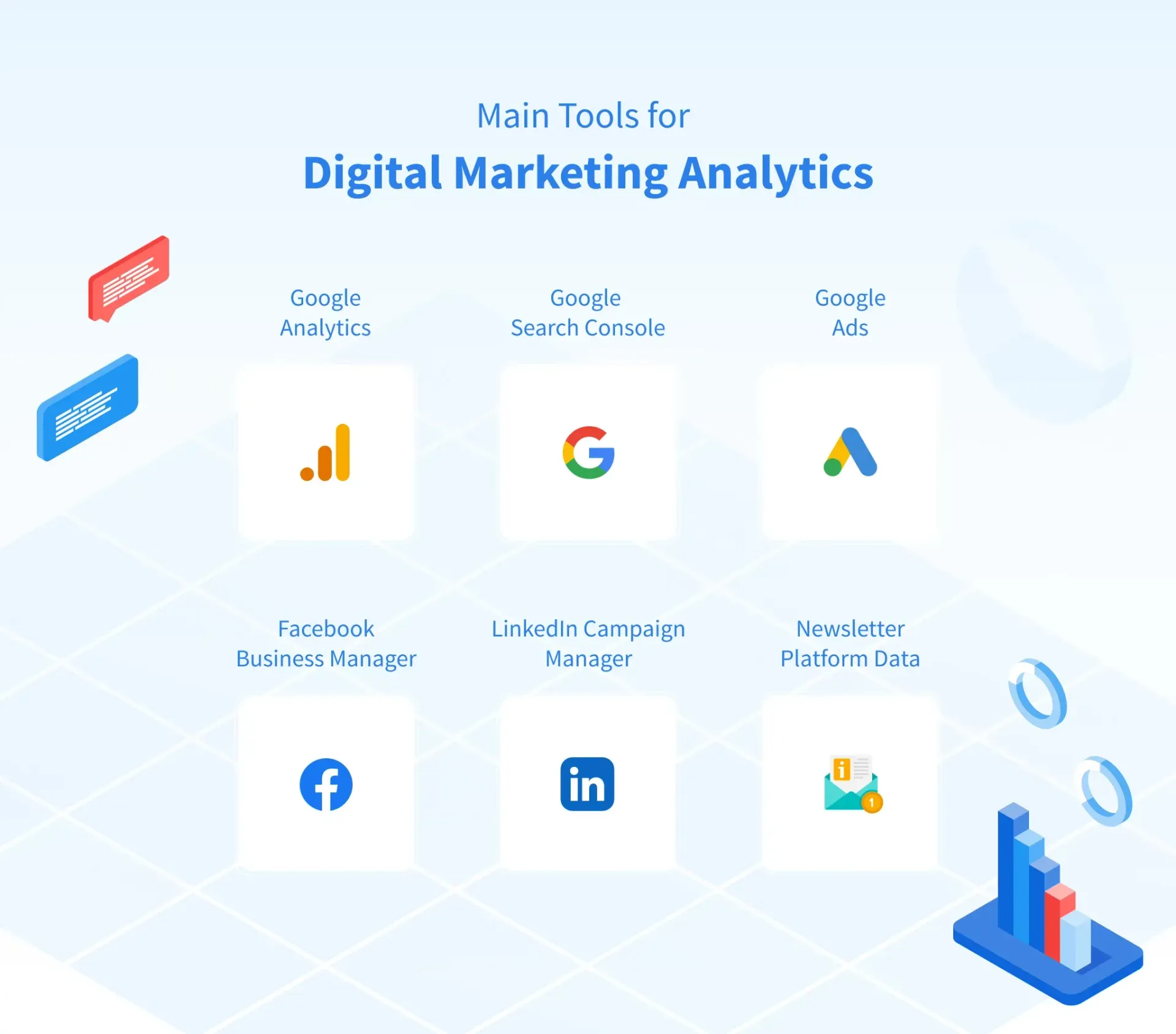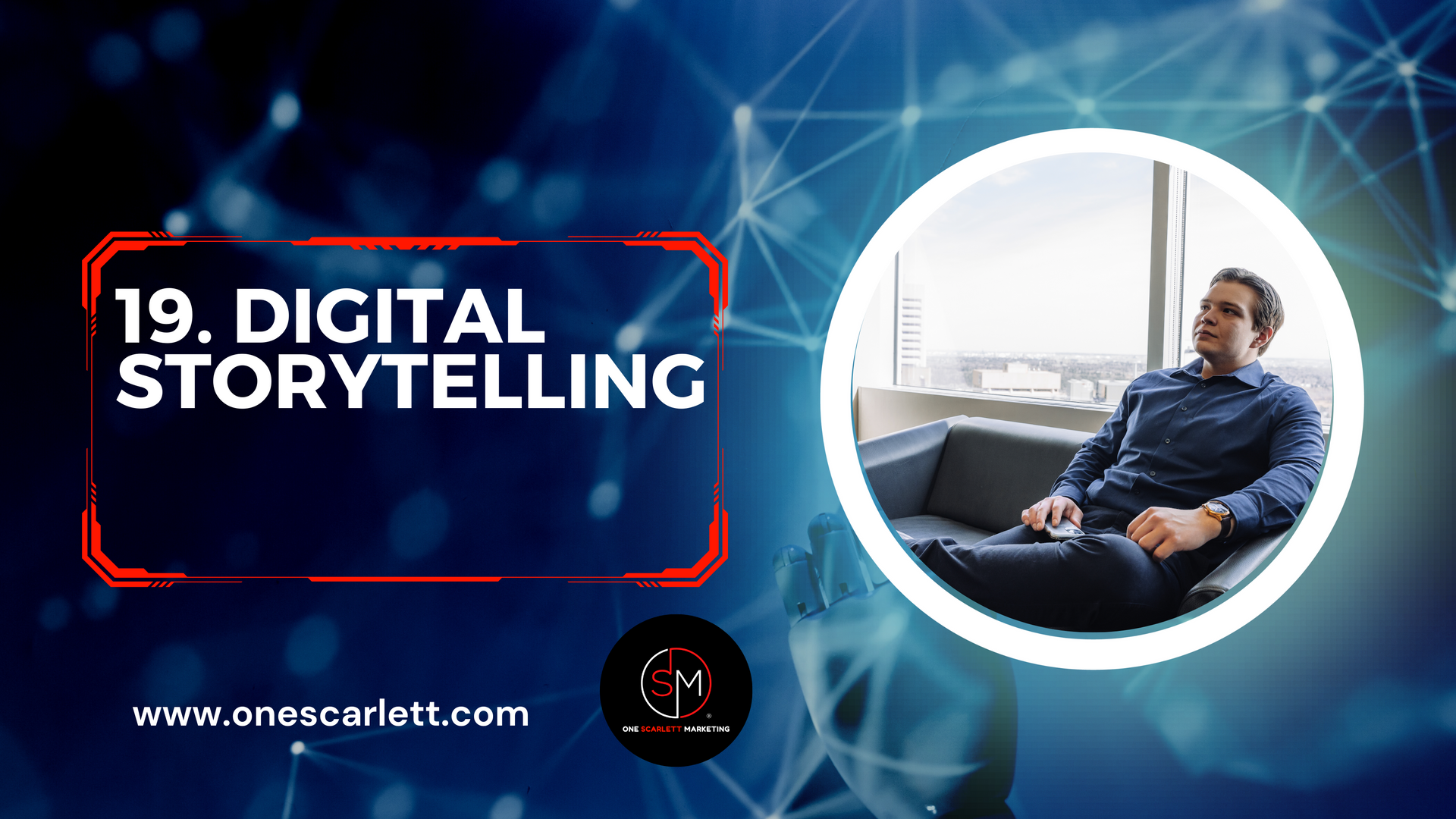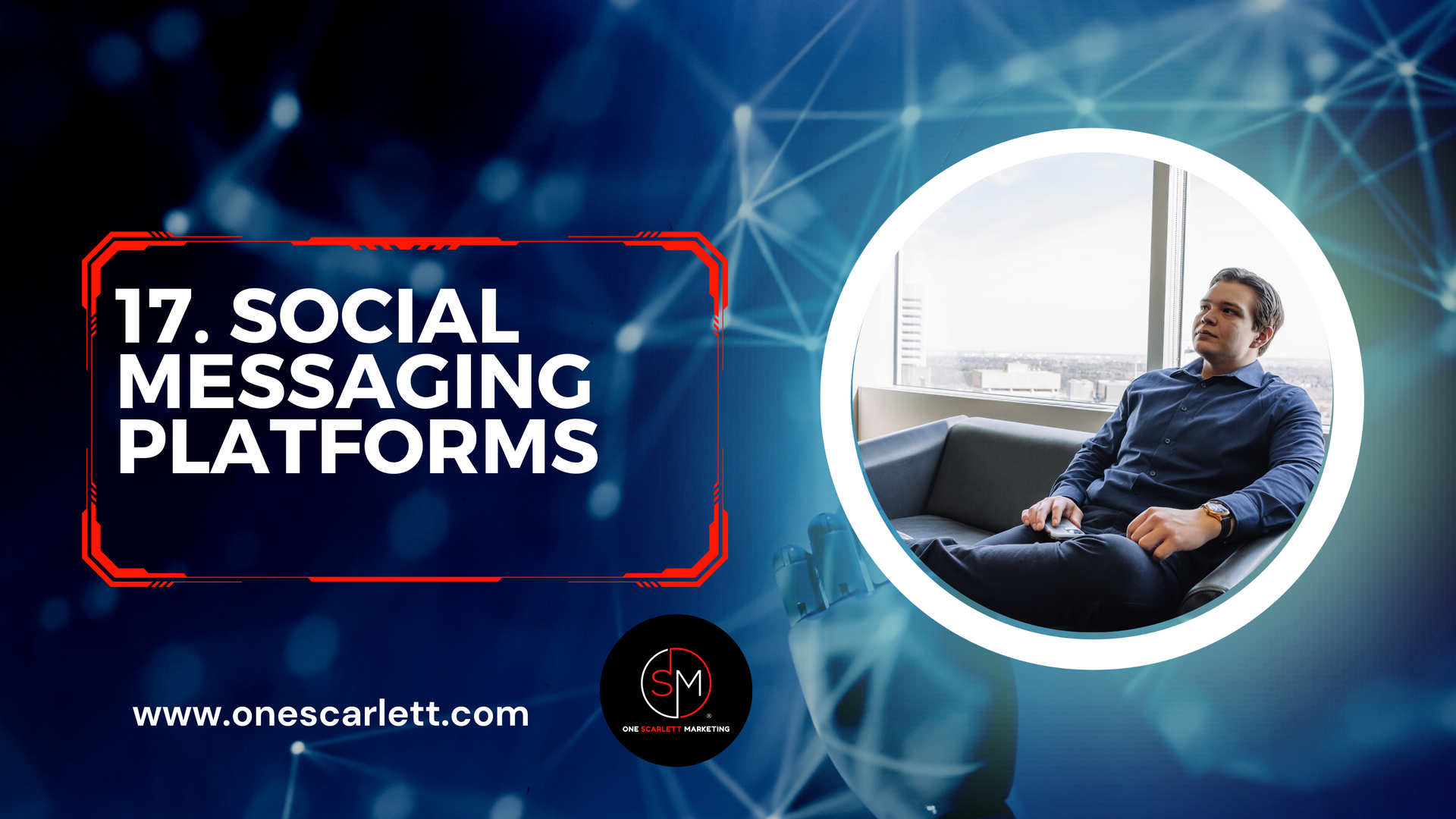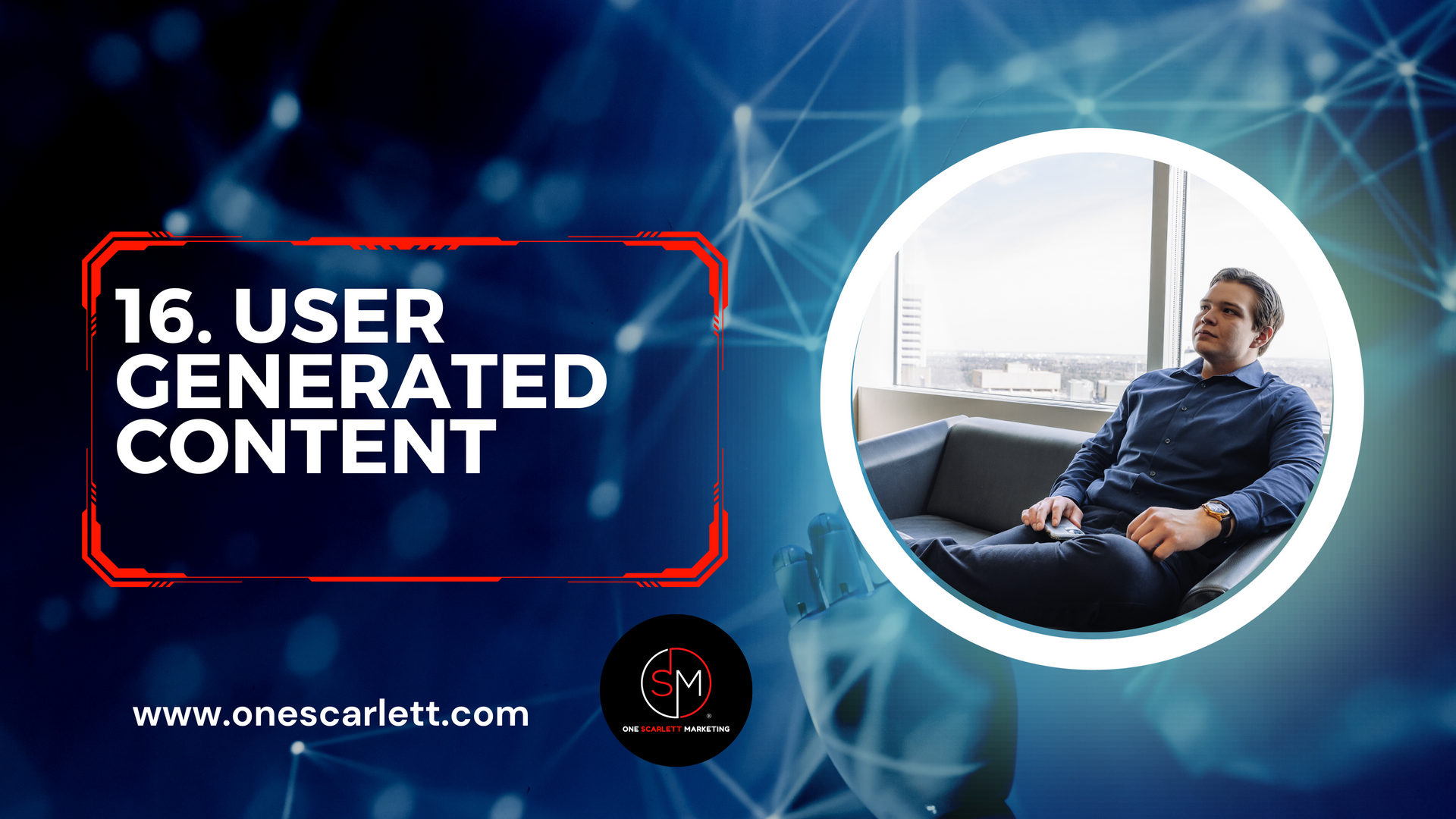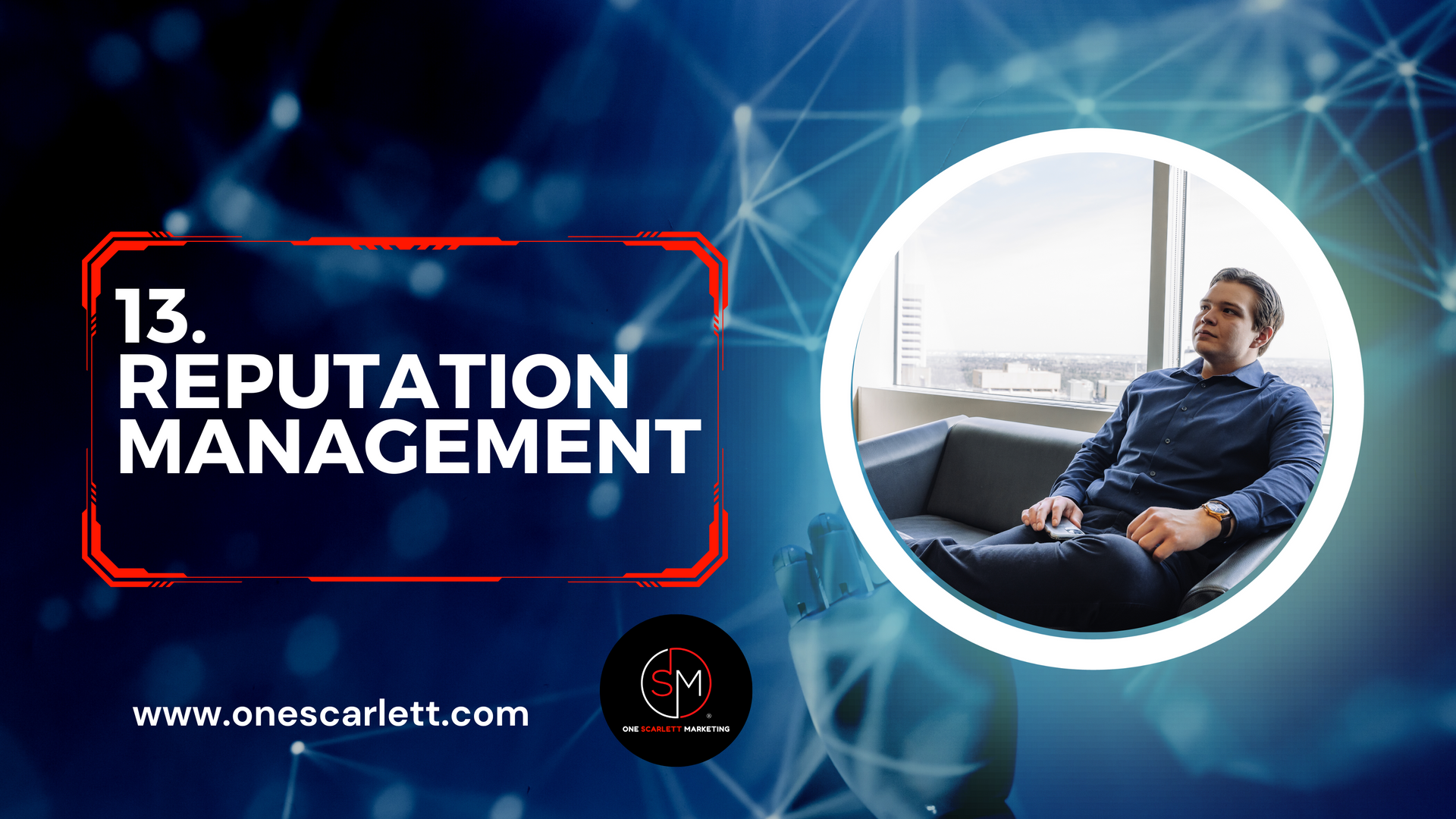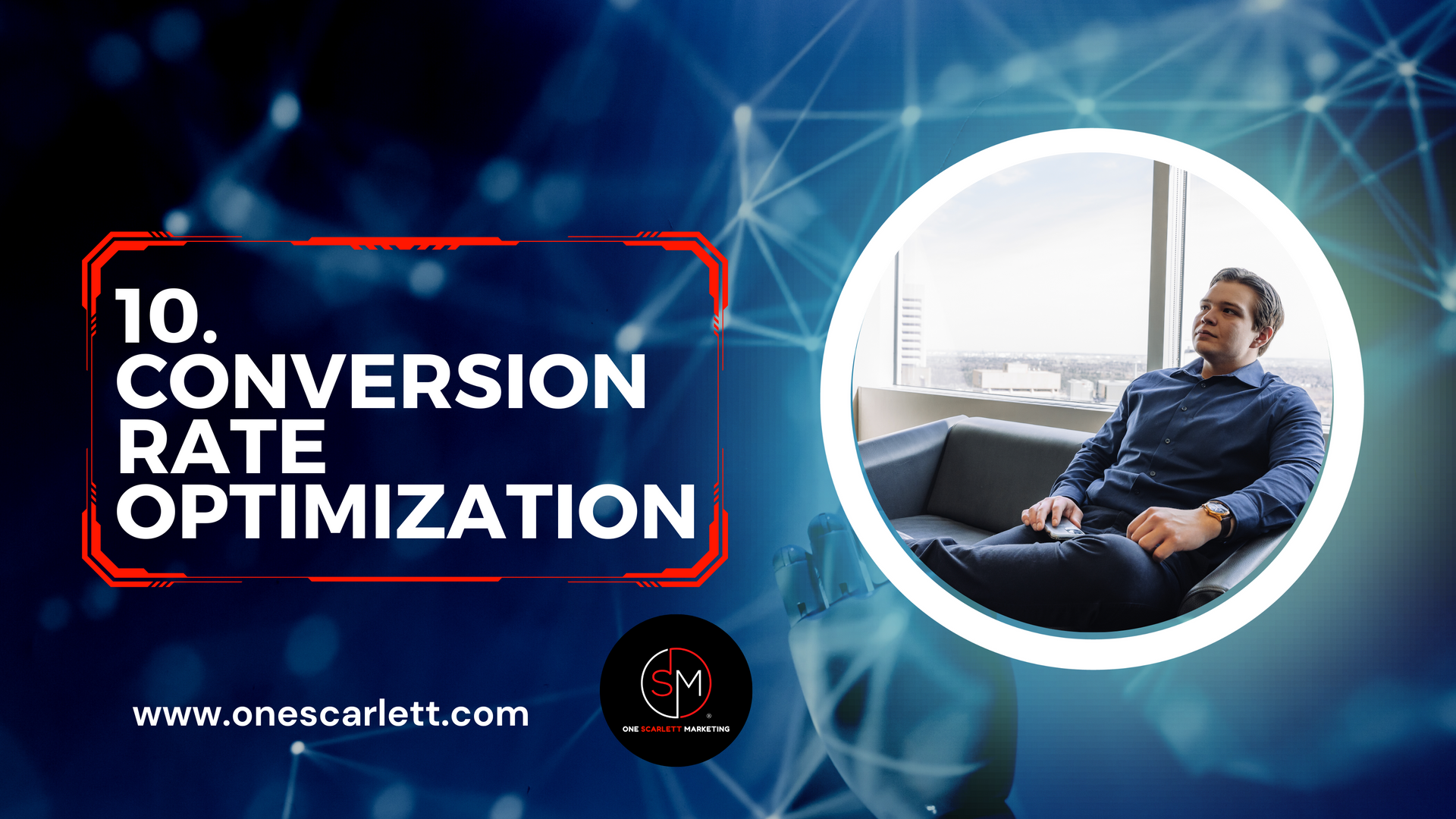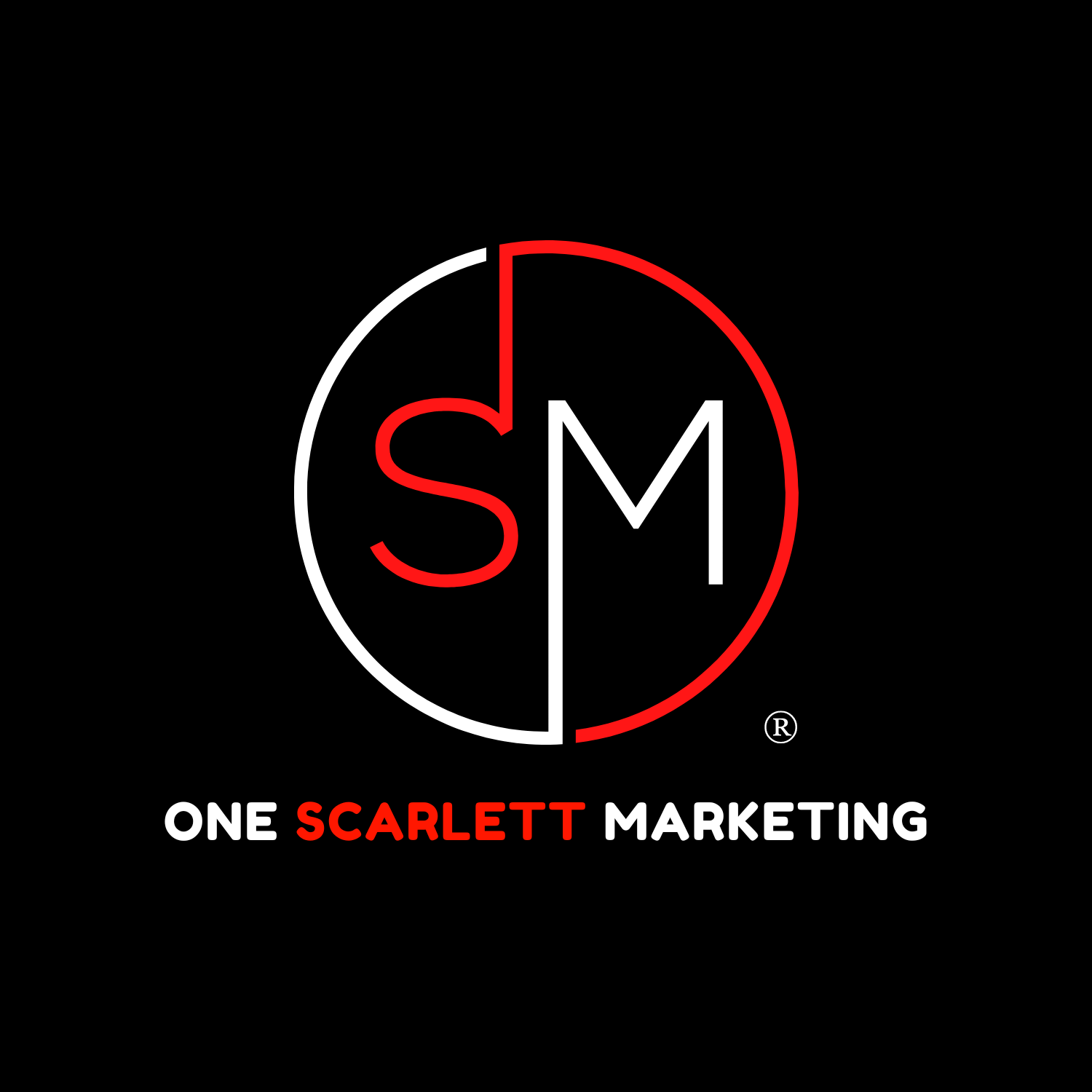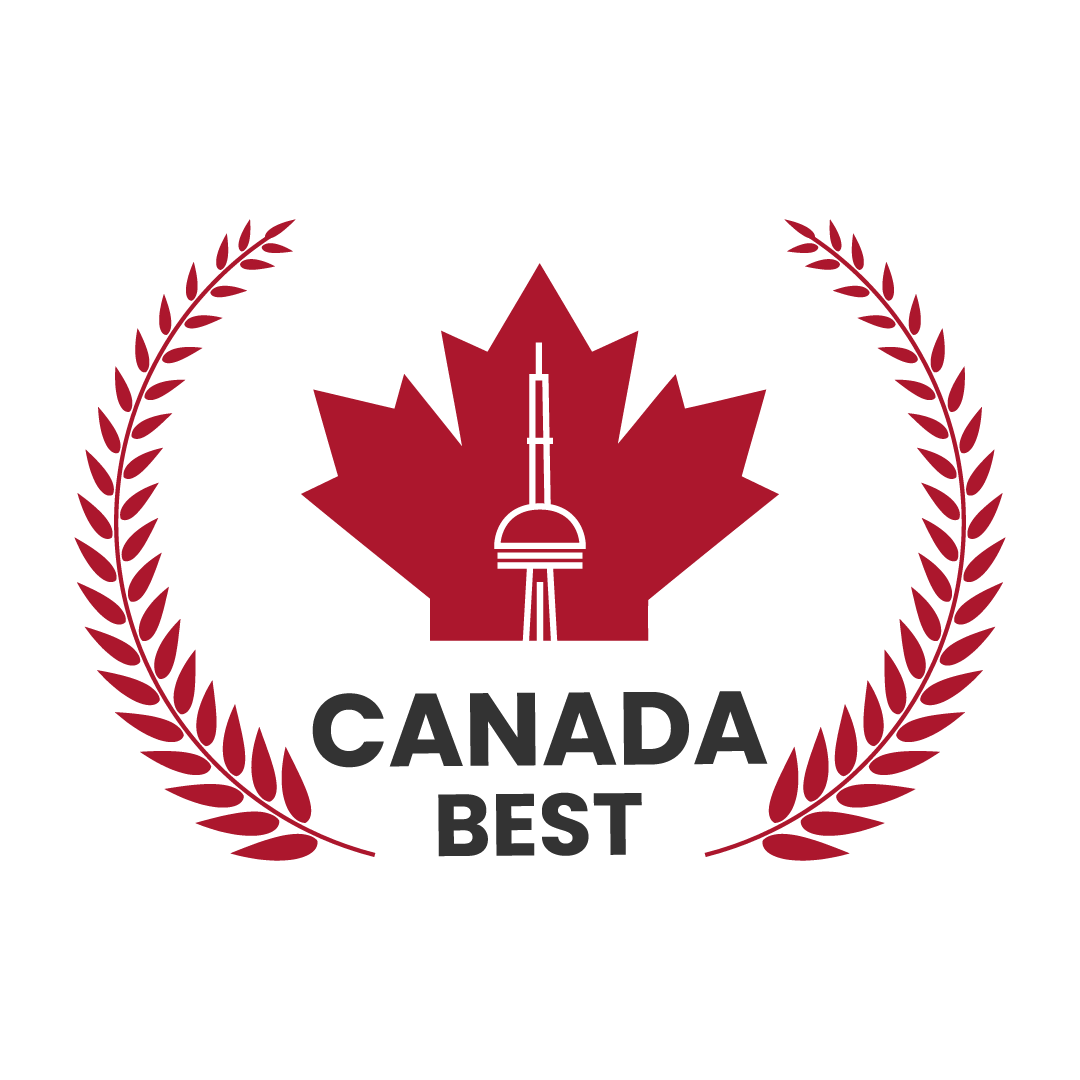Digital Marketing Terminology 101 -
FAQs, Terms, Definitions & Explanations by One Scarlett Digital Marketing
Browse hundreds of digital marketing frequently asked questions that answer what you might not even think of. This is the easiest way to educate yourself at your own pace and learn the ins and outs of digital marketing services.
-
What is Digital Marketing?
Digital marketing is the promotion of a business through digital channels such as a website, search engine optimization, social media, email, or online paid to advertise.
-
Why is Digital Marketing Important?
Digital marketing provides ways for companies to grow their audience, increase profits, and build a better relationships with past and future customers.
While that’s the goal of traditional marketing campaigns too, digital marketing allows brands to target a more specific or niche audience or cast a wide net with easier-to-measure results.
Digital Marketing is slowly becoming the most profitable marketing channel dollar for dollar.
-
How important is Digital Marketing for Small Business?
Without proper marketing and ensuring your business can be found when someone searches, no one will know about you.
Implementing simple, online marketing activities puts your business in front of more potential customers. Your marketing can educate them about the products or services you offer.
-
When does my Small business need Digital Marketing?
The answer to that question is “all the time”.
Digital Marketing is not something you can turn on and off. Digital Marketing also needs to be viewed as an investment, not an expense. Turning on digital marketing only when business gets slow puts you in a vicious cycle. Although you could spend money on paid advertising to hasten your visibility, it is better to build visibility organically.
Effective small business digital marketing is not an activity to be done only when things get quiet but is a process that should be constantly and consistently happening in your business, making your business more visible to those looking for your products and services.
-
What does a Digital Marketing Agency do?
A digital marketing agency works with businesses to help them build their brands and increase their digital footprint through a variety of digital mediums.
-
What is Social Media Marketing?
Social media marketing (SMM) is a form of internet marketing that uses social media apps as a marketing tool.
These social media platforms enable brands to connect with their audience to:
- build a brand;
- increase sales;
- drive traffic to a website; and
- build a community of followers to share and engage with content.
Producing relevant content that users will share with their own networks helps brands increase their exposure.
It also extends its reach toward fans, potential customers and even potential employees when used as a recruitment tool.
Social media marketing also enables organizations to get customer feedback while making the company seem more personable. Social media enables organizations to create relationships with their audience. It gives end users a platform to ask questions, voice complaints and generally be heard. It also gives brands the opportunity to respond, adapt and adjust business processes or products.
Some popular social media apps include Facebook, Twitter, LinkedIn, YouTube, Pinterest, Instagram and Snapchat. Each platform has elements that make it attractive to use. And when a company uses several in combination to deliver a multichannel message, consumers can see those messages on their preferred channels.
Learn about Social Media Management Here
-
What is Content Marketing?
Content marketing is a strategic marketing approach focused on creating and distributing valuable, relevant, and consistent content to attract and retain a clearly defined audience — and, ultimately, to drive profitable customer action.
-
What is Local SEO?
Just like it sounds, local SEO involves optimizing your website for local search. Talking about things that are happening in the community, ensuring that all of your maps are up to date, and participating on social media are all great ways to improve your local SEO.
-
What is Google Business Profile SEO
Google Business Profile (Also known as Google My Business SEO) is an easy-to-use tool for businesses and organizations to manage their online presence across Google. To help customers find your business, you can verify your business and edit your business information.
Benefits of Business Profile
Manage the information that Google users find when they search for your business or the products and services you offer. When people find your business on Google Maps and Search, they can find information like your hours, website, and street address.
You can read and respond to reviews from your customers. Post photos that show off what you do.
Local Businesses that add photos to their Business Profiles receive 42% more requests for directions on Google Maps, and 35% more clicks through to their websites than businesses that don’t.
Understand & Expand Your Presence
Find insights to learn how customers search for your business, and where they come from. You can also find information like how many people call your business directly from the phone number displayed on local search results in Search and Maps. To spread the word about what you offer, you can create and track the performance of Smart campaigns.
Source:
https://support.google.com/business/answer/3038063hl=en&co=GENIE.Platform%3DAndroid
-
What is Responsive Web Design?
Nowadays, users are using a variety of different devices of all different sizes and orientations. As a result, companies should be establishing a responsive web design when building web pages.
Responsive design has the ability to detect the user’s screen size and orientation in order to adjust the content and layout accordingly. For example, the layout on a mobile device will be much narrower than the layout on a desktop.
-
What are Keywords?
A keyword is a search term or phrase that users will use to locate and interact with your business online.
You can use a group of keywords to attack a broader area thus increasing your engagement and conversions.
A targeted keyword is a keyword in your niche that the majority of content will be based around. Giving Google more content in your targeted keyword area will increase your online strength.
-
What is Search Engine Optimization? (SEO)
Search engine optimization is the process of improving the quality and quantity of website traffic to a website or a web page from search engines. SEO targets unpaid traffic rather than direct traffic or paid traffic.
Search engine optimization ranking can be accelerated with website indexing with Google Search Console. These specific high-traffic keywords will rank your website for content that generates your business interest and engagement.
- On-site SEO (also known as on-page SEO) is the practice of optimizing elements on a website (as opposed to links elsewhere on the Internet and other external signals collectively known as "off-site SEO") in order to rank higher and earn more relevant traffic from search engines.
Search engines such as Google and Bing use bots to locate content and index the pages. Think of the index as a massive library storing your web pages.
These Google and Bing bots look for integration of:
- Link Building
- Content Marketing
- Social Media Marketing
- Podcast or YouTube Videos
- Personal or Client Reviews
Think about off-page SEO as building your site’s domain authority. Without this, your site might struggle to outrank websites with higher authority.
-
What is Google Maps?
Google Maps is a web mapping platform and consumer application offered by Google. It offers satellite imagery, aerial photography, street maps, 360° interactive scenic views of streets (Street View), real-time traffic conditions, and route planning for travelling by foot, car, bike, air (in beta) and public transportation. As of 2020, Google Maps was being used by over 1 billion people every month around the world.
Source:
-
What are Google Ads?
Display campaigns serve visually engaging ads on the Google Display Network.
The Display Network helps you reach people as they browse millions of websites, apps, and Google-owned properties (such as YouTube and Gmail)
Benefits
Reach people in multiple places:
Display campaigns can reach people worldwide across 35 million websites and apps, and on Google-owned properties (YouTube and Gmail).
This allows you to expand your reach beyond just Google Search. Build campaigns around your goals: Drive sales, leads, and website traffic or build awareness and consideration for your business, product, or service.
Designed for ease of use:
Display campaigns use machine learning solutions across targeting, bidding, and formats to reach a new or existing audience. This can help your campaign deliver the best campaign results, friction-free.
Optimized targeting:
Find the best-performing audience segments that include potential customers with the highest likelihood to help you meet your conversion goals. Learn more about optimized targeting
Smart bidding:
Bidding that uses machine learning to optimize for conversions or conversion value in each and every auction. It helps you save time and improve performance.
Source:
-
What is the Google Keyword Planner
Google Keyword Planner helps you research keywords for your Search campaigns.
You can use this free tool to discover new keywords related to your business and see estimates of the searches they receive and the cost to target them.
Keyword Planner also provides another way to create Search campaigns that are centred around in-depth keyword research.
Benefits:
Discover new keywords: Get suggestions for keywords related to your products, services, or website.
See monthly searches: See estimates on the number of searches a keyword gets each month.
Determine cost: See the average cost for your ad to show on searches for a keyword.
Organize keywords: See how your keywords fit into different categories related to your brand.
Create new campaigns: Use your keyword plan to create new campaigns centred on in-depth keyword research.
Conclusion:
Keep in mind that while Keyword Planner can provide insights into keyword targeting, campaign performance depends on a variety of factors.
For example, your bid, budget, product, and customer behaviour in your industry can all influence the success of your campaigns.
Using a professional firm is recommended when first getting started. You can meet with an expert by clicking the blue button at the top of your screen.
Source:
-
How do we choose SEO Keywords?
SEO experts use a variety of tools to choose keywords. Some of the most common ones are Google Search Console, Ahrefs, Moz, and Ubersuggest. We may also use suggestions based specifically on what a client wants to rank for.
-
Do I really need a Website?
Yes! Word of mouth can be great, but a majority of consumers find and research companies online before making any purchases.
An online presence gives your company credibility and boosts brand awareness. Plus, websites are an avenue for endless marketing strategies, including e-commerce, online customer service, and consumer engagement.
-
How much time should Social Media Marketing take me?
This is strongly dependent on your brand and where else you’re marketing.
One thing that we will say, though, is brands often underestimate how long it takes to create a successful social media marketing campaign.
Our team puts multiple hours in per week to create graphics, write content, engage with other brands, and stay on top of the most recent trends.
-
What Social Media Platforms are Best for My Business?
While social media presence is crucial for all companies, each company will have different social media needs and strategies.
For some, Facebook will be the best platform for business, while Instagram may be better for others. To determine which platform is best for your business, it is important to first determine your target audience and social media goals.
One Scarlett Marketing will determine the best channels for your business.
-
Do I need to pay for Facebook?
Facebook is a free social networking site. Users do not have to pay to create profiles or business pages unless they wish to market their page through ad campaigns.
Simple and easy to use, Facebook Ads can help businesses boost their visibility, market products, or promote events.
-
What pages should be on my Website?
Every small business is different, which every website will be different. Creating a new website can be a daunting task, but One Scarlett is here to make it easy. Every website should have the basics: Homepage, About, Contact page, Products/ Services, FAQs, and Testimonials.
Besides the basics, every business should include additional web pages that are unique and relevant. Every small business is different, which means every website is different.
-
What makes good Web Design?
Websites should be designed to invite and entertain users, not push them away. The only way to attract and maintain users is with a good web design. The homepage should be visually appealing, easy to understand, and clear of any annoying pop-ups.
If the homepage is bad, the user will exit the website rather than continue exploring. The web design should also allow for easy navigation and fast load speed without blurry images or extensive copy.
-
How does a Website Increase Sales?
The primary way a website increases sales is by offering users a convenient way to shop for products and services. Through the use of pop-ups offers and special online discounts, small businesses can encourage consumers to make the switch from window-shopping to buying.
With an enhanced incentive to buy, along with clear and concise product descriptions, users are quickly turning to company websites for all their consumer needs.
-
What is the main purpose of Social Media Marketing?
Social media falls in the brand awareness and consideration stage of the sales funnel. Social media platforms allow businesses to connect with their target audience and slowly but surely nudge them down the funnel with content and links to learn more.
By providing relevant information about products and services, engaging with their audience, and providing free trials or specials, businesses are able to nurture leads into buyers.
-
What is the difference between Digital Marketing and Advertising?
Digital marketing allows businesses to raise brand awareness, share information about products, engage with the audience, and monitor online reputation.
Digital advertising allows businesses to advertise and promote products, offer discounts or specials, and attract buying customers. Simply put, digital marketing establishes a target consumer audience while digital advertising drives this audience to sales.
-
How often should I update my Web content?
As a general rule of thumb, companies should be publishing new blogs at least twice a month – blogs are key to keeping your website updated with the relevant and fresh information that search engines prefer.
If any significant news or information has been released, that content should be posted as soon as possible. Pillar pages and landing pages content should be regularly revised as the company grows and changes.
-
What is Local SEO enhanced by?
As compared to standard SEO, local SEO refers to Local Search Engine Optimization. Local SEO comes into play when users are searching for products, services, or resources near them in real time.
For example, a search for “shoes” will yield greatly different results than a search for “shoes near me.” Local search often includes locations, which is why companies should keep their Google Business Profiles (Google My Business) up to date.
-
Why is there a wide range of SEO prices?
When it comes to search engine optimization (SEO), there’s an extremely wide range of strategies to use.
Some are simple, yet impactful, and don’t take very long. Others are incredibly intensive and may take days or even weeks to fully implement.
Just like many other services, SEO costs all depend on how experienced your SEO agency is and how intensive you want your optimization to be.
-
What is Robots.txt?
Robots.txt is a file that tells Google which URLs it can and cannot look at on your website.
-
Who should I be Marketing to?
Who you should be marketing to online depends on the customer profile, aka buyer persona, that you create based on market research, search data and website performance data. It also depends on digital marketing channel and budget – because sometimes casting a wide net is too expensive or overwhelming to your sales team.
Your buyer persona information should answer why your audience would want to do business with you, what’s important to them when making a decision, and what has stopped them from working with you in the past. Your primary persona is not who you want to buy from you in a perfect world; it is someone who shows signs of being interested in your offering and qualified to purchase.
-
What are the Benefits of continuously marketing my business digitally?
Benefits of continuous marketing:
- You build awareness and brand differentiation for your business by being visible to your prospects and clients;
- You establish a solid reputation for your business by marketing your expertise through articles and blogging;
- You distinguish your business from the “competition” by staying visible and promoting your expertise;
- You can evaluate your marketing efforts by the results you are seeing in your business. If they work, keep doing them; if they don’t work try something else.
-
Why is Marketing a continuous process?
Marketing takes time to take effect. When you shut something down, it is really hard to kick it back up. Plus stopping and starting marketing doesn’t give you enough data to know whether something is working or not.
The key is to put a marketing effort in motion and let it run, evaluating the outcome and tweaking the campaign when need be. Starting and stopping marketing is guaranteed to give you less-than-stellar results.
Build marketing into your business strategy so that it becomes second nature and ensures your business stays visible to your clients. If you don’t feel you can do it yourself, find a reputable marketing agency to help.
An investment in marketing your business can be small but the payoff can be substantial.
-
Why do I need a Digital Marketing Strategy?
Without a documented digital marketing strategy, your business is making decisions on the fly.
This results in disjointed marketing efforts, wasting time and resources on activities that may or may not work for your business.
When your plan is written down, you become more focused. Committing your goals, strategies and activities to a written document is the only way to avoid losing sight of what you want to achieve – turning our ideas into proven reality.
-
Why do I need a Digital Marketing Strategy?
If you want your marketing to be effective, you need to treat marketing as a process – a series of actions to achieve your particular marketing goal.
Unless you create a marketing system, your marketing process could be inefficient and inconsistent, producing results that are less than you had hoped.
The key to implementing an effective marketing system is to ensure it aligns with your marketing strategy and defines the steps you will take to implement a successful inbound marketing campaign.
-
Why does my Website need Mobile Optimization?
As more people are visiting websites from their smartphones than web browsers, it is important that your website be able to support a broad range of devices.
Google began to index websites using its Mobile Index in 2018. As of March 2021, websites must support mobile otherwise you risk being removed from the index.
-
Why do I need Search Engine Optimization for my Website?
Optimizing your website is the process of ensuring your web pages can be found when someone is searching using the most relevant keyword phrases for your business. Taking the time to optimize each page and post on your website can have a huge impact on your organic traffic.
Getting your website organically ranking high in search engines is one of the most important aspects of your marketing plan. Traffic that comes from organic search engine results is extremely cost-effective, providing a high ROI if that traffic converts into paying clients.
-
Can Social Media Marketing really help my business?
Most definitely! It’s been proven again and again by business after business. In fact, not utilizing social media marketing can actually harm your business, since having an online presence on social media is simply expected of any reputable firm these days.
-
What is the ROI on Social Media Marketing?
One thing is for certain – social media marketing is never free. Whether you’re spending your own valuable time on it, asking an employee to add it to their workload, hiring a social media employee, or outsourcing marketing from a firm, there is always a cost.
The key is to get the maximum ROI out of the time or money you put into it. It’s important to remember, however, that ROI doesn’t have to mean revenue. It can, but it can also mean meeting other objectives, such as getting new leads, increasing email subscriptions, or even boosting customer satisfaction.
The ROI you end up with is the direct result of how focused your social media marketing strategy is.
-
Does my company really need a blog for Social Media posting?
Yes! A blog is one of those non-negotiables. Apart from all of the benefits it provides on its own, such as increasing your credibility as an industry expert and providing fresh, keyword-rich content on a regular basis to please the search engines, a blog is a vital component of social media marketing.
One of the most effective types of content to post on social media is a link to a blog post. Without fresh blog posts being shared on a regular basis, you won’t have nearly as much to talk about with your fans, and you won’t be driving as much traffic to your site, either.
-
Is Social Media better for B2B or B2C?
It’s important for both, but in different ways. While B2C businesses can focus on more light-hearted, fun social media posts, B2B businesses need to use social media to share valuable industry content. As a tool for connecting a business with its customers, however, social media is vital to both.
-
How should my business be using Facebook?
Facebook is the social media platform of choice for over a billion people worldwide. Use it to connect and interact with your audience, and to share your content in a way that encourages your fans to share it as well.
Post photos of customers, events, business deals and more. Remember to hyperlink!
-
How can my business utalize LinkedIn?
LinkedIn has over 467 million users. It is a great place to share your credentials with the world, but more importantly, it’s the perfect place to interact with your audience online.
Using LinkedIn Groups, you can answer questions and contribute to discussions in order to demonstrate your industry thought leadership as well as your willingness to help others generously.
-
What type of Social Media Content converts best?
Just like question #5, this one depends on your audience. The best way to find out what type of content converts most effectively for you is to test, tweak, and test again until you find the right fit.
-
How much time per week should Social Media Take?
Timing is everything in social media marketing. The good news is, by using social media you have the opportunity to reach your specific audience in real-time.
But even though there are many tools you can use to schedule and automate posts to save some time, you’ll also want to keep track of the activity on your social media accounts throughout the day, so that you can provide timely responses to audience questions and comments.
Between strategizing, creating and posting content and images, responding to your audience, and checking analytics, social media done right is a full-time job.
-
How long until I see Social Media Marketing results?
With social media constantly evolving, this depends on variables such as the time and effort you’re putting into social media marketing management, your budget, your audience, your strategy, and whether you’re using paid ads or not.
Regardless, it’s important to remember that social media is a marathon and not a race.
-
What are some common mistake people make with Social Media Management?
One of the worst mistakes is inconsistency – only posting sporadically, and not responding when consumers reach out to engage.
Another biggie is using social media as a place to announce your own content and nothing more, without ever engaging in discussions or adding comments to posts that make your audience want to click or like or share.
-
Is Email Marketing effective?
Email marketing is one of the most effective ways for a business to reach customers directly. Think about it. You’re not posting something on your site and hoping people will visit it.
You’re not even posting something on a social media page and hoping fans will see it. You’re sending something directly into each person’s inbox, where they definitely will see it!
Even if they don’t open it, they’ll still see the subject line and your company’s name each time you send an email, so you’re always communicating directly with your audience.
-
Do I need to send an Email Newsletter?
For some businesses, a newsletter is a way to go. For others, a different approach works better. Newsletters usually feature several different pieces of content, such as recent blog posts and current specials.
But it’s also perfectly fine to send an email featuring only one piece of content, or an individual marketing message. Tailor your email structure to your unique audience, and see what works best through experimentation.
-
How often should I send Digital Marketing Emails?
As often as you can, without getting annoying. How’s that for a vague answer? But it’s true – you want to send frequent emails, but not so frequently that people start unsubscribing or worse, marking them as spam. Where’s the happy medium?
Unfortunately, it’s different for each business. 33% of marketers in 2022 send weekly emails, while 26% send emails multiple times per month. Again, it’s a matter of experimentation and testing to see what your particular audience responds best to.
-
When is the best time of day to send an Email Marketing Campaign?
Once again, the answer to this question differs from business to business. And once again, testing is the way to find out what works best.
As a general rule, weekends and mornings seem to be the times when more emails are opened – but since your audience may have different habits, it’s best to experiment and then use your own data to decide.
-
How can I keep my emails out of the spam folder?
There are certain obvious email marketing no-nos to avoid if you want to stay out of the spam folder – things like mentioning Viagra or writing in all caps. But spam filters are much more sophisticated now than they used to be, so one or two trip-ups usually won’t mean the end for you.
The best way to stay out of the dreaded spam folder is to write not like a salesperson, but like a friend – the tone of your emails, and even the vocabulary you use, will automatically be different.
-
How long should my email marketing email be?
The average person will only spend about 20 seconds reading an email, so use that as a guideline.
If your email will take longer than 20 seconds to read, make sure that the most important information, as well as your call to action and links, are located near the top, where they can be seen without having to scroll down.
Remember to hyperlink!
-
How do I write a great marketing email?
The single best piece of advice we can give when it comes to writing a marketing email is to keep the following in mind:
The purpose of every email you write is to deepen your relationship with each individual subscriber. That means writing to them as if they were a friend, or at least a real-life person, rather than sounding like a used car salesman.
-
Should I segment my Email Marketing Lists?
If you have the resources to write that extra content, and the flexibility within your niche to divvy your subject matter up into segments, then by all means, yes!
Segmenting your email list is a great way to personalize marketing messages according to subscribers’ individual interests, making them that much more effective.
-
What are the important Email Marketing Metrics or KPIs?
The two most important metrics for email marketing are the open rate and the click-through rate.
If your emails aren’t getting opened, subscribers will never see your full marketing message – and if they’re opening them, but not clicking through to your site, your emails aren’t converting.
-
How do I write a great email marketing subject line?
The best subject lines are short and to the point, accurately describing what’s in the email – but also catchy and intriguing, so the reader wants to know more.
Once again, this is the perfect place for some A/B testing, to see which types of subject lines work best with your audience.
-
How can I increase my email marketing click through rate?
Amazingly, people are much more likely to do something if you simply ask them to. By placing a call to action in your email, specifically asking subscribers to “click here” or “shop now,” you’ll see a boost in your click-through rate.
-
How do I write a great Call to Action CTA?
Your call to action should be very clear, and very simple. It should be somewhere towards the top of your email for those who won’t finish reading the whole email and then repeated again at the end for those who do read all the way through.
It should spell out exactly what you want subscribers to do, such as, “Click here to download our report.”
-
How can I increase my Email Marketing Click Through Rate CTR?
Amazingly, people are much more likely to do something if you simply ask them to. By placing a call to action in your email, specifically asking subscribers to “click here” or “shop now,” you’ll see a boost in your click-through rate.
-
What should my From line say when Email Marketing?
The most important thing to remember about your From email address is to make it recognizable. If subscribers see an unfamiliar name on the From line, they might just mark the email as spam.
Your From line should either feature your company’s name, or an individual’s name if you want to make it more personal – but it needs to be clear which company that individual is a part of, or subscribers will again be confused.
-
What qualifies as content when Content Marketing?
When most people think of content marketing, they think of a blog. And blogs are certainly one of the easiest and most effective means of content marketing available.
But they aren’t the only forms of content that can be employed in a content marketing strategy. Any valuable information, conveyed via any medium, can be considered content.
Videos, infographics, slideshows, PDFs, blogs, articles, podcasts, white papers, ebooks, webinars – the list goes on and on.
-
What are the benefits of Content Marketing?
There are many reasons why your brand should create a content marketing strategy:
- It allows you to connect directly with your target market
- It helps you stand out from the competition
- It generates leads and sales
- It helps you build brand visibility
- It’s cost-effective
- It can be repurposed for many different platforms
- It’s sustainable and adaptable
- Essentially, content marketing allows you to share your brand’s narrative directly with your audience.
-
How should I get started with Content Marketing?
Though it can be tempting to jump right in and start writing a blog without much forethought, the only way to ensure that your content marketing will be effective is to take the time to create a strategy first. Without a clear plan in place, all the time you put into developing content is wasted.
-
How to create a Content Marketing Strategy?
First, determine who your target audience is. Develop a customer persona to whom your content should speak. Then, based on that persona and your company’s brand image, decide on your company’s voice, and the type of content you will be creating.
Your content needs to be informative and valuable, as well as interesting and engaging, to your target demographic. And once you start producing content, constant tweaking of your strategy is in order, based on how successful each post is.
-
How important is it to share my Content Marketing content on Social Media?
It’s not important – it’s essential. Posting content to a blog and then sitting back and hoping that visitors will find it is an exercise in futility. In fact, some blogging gurus maintain that only 20% of your time should be spent on content creation, and the other 80% on promoting that content via social media! It’s that vital.
-
How can I make engaging content?
The answer to this question depends a lot on your particular audience. What’s engaging to teens will necessarily differ vastly from what middle-aged business professionals will find engaging.
Speak to your target audience’s pain points or interests, let them see that you understand them and want to help them – and then open up the conversation.
Ask questions, and invite them to respond. The beauty of content marketing, as opposed to traditional marketing, is that communication is not one-way anymore.
-
How can Content Marketing turn me into an Industry Leader?
There’s a lot of talk about the importance of becoming a thought leader – and with good reason. Getting you known as an expert in your field is exactly what content marketing is meant to do.
It’s what creates a sense of trust in consumers, which allows them to feel comfortable making a purchase from you. By creating unique, original content, in which you demonstrate your expertise and answer questions consumers might have, you’ll be on your way to becoming an industry thought leader in no time.
-
Is there a difference between B2C and B2B Content Marketing?
Yes and no. The purpose of each is the same, but since the audience is different, your content will also vary.
B2B content tends to be more professional and businesslike in its voice – though not always – and the topics will, of course, be more business-oriented.
B2C content, on the other hand, is usually more conversational, and the topics have a little more free range.
-
Do I need to create timely or evergreen content?
The answer here is definite…both! It’s important to have content addressing current events and new developments in your industry – that’s a great way to draw traffic to your site through social media and online searches.
But it’s also important to create evergreen content that will continue to attract visitors for months and even years. Otherwise, your entire library of content will continually lose its relevancy within weeks of its publication.
-
How can I create content that converts?
It’s important to remember that content marketing is just one step in the conversion funnel. It’s only through a combination of SEO, content marketing, social media marketing, outreach, email marketing, and website design that prospective customers are led to converting.
That said, content marketing is vital in the conversion process since each page of your website and each informative blog post or white paper plays a distinct and definite role in convincing visitors to buy.
Craft different content with each step of the conversion funnel in mind and don’t forget to include a solid call to action.
-
What are some common Content Marketing mistakes?
The most common content marketing mistake is to fall back into the old habits of traditional marketing.
Writing blog posts that are overly salesy, or that promote the company and its products excessively, is a big no-no.
Content should be valuable to consumers, and sales pitches are not only not valuable – they’re off-putting. There’s a time and a place for sales, and it’s not in your content.
-
How do I get people to view or read my content?
Promoting your content through email and social media is vital, but even the best promotion efforts can be stalled by a lousy title.
Make sure that the headline of your content is intriguing and informative. It should convey an idea of what the content contains, while also hooking people’s interest.
-
How do we measure the success of a Content Marketing Strategy over time?
Ultimately, the success of a digital marketing strategy can be seen in the number of conversions it creates.
But it can be difficult to track exact results, as a consumer needs several “touches” before finally deciding to purchase.
A visitor may read a blog post and then see an update on social media, and then read a few emails, before finally deciding to convert.
While the blog post wasn’t the immediate cause of the purchase, it was that all-important first touch.
-
Why should I consider a long-term Search Engine Optimization SEO Strategy
SEO (also called search engine optimization) is comprised of two main fields of focus. The first is on-page optimization (which takes into account everything that will be done on each page of a website to be optimized) and off-page optimization (which takes into account everything that will be done off of the website to influence a site's notoriety and influence. The goal of SEO is to help increase the visibility of a website in a search engine vis a vis a said set of keywords (or phrases) within a specific, pre-determined geographic area.
Many people mistakenly believe they can do SEO by themselves. Although completely possible, it is wise to be cautious when embarking on an SEO campaign on one’s own. The main reason for this is there is a significantly large time cost investment required to do all things properly that many people often underestimate.
Additionally, there is an abundance of dated information across the internet that if applied can negatively affect the desired outcome, essentially worsening a perfectly good starting point position of a site.
Many updates are made by search engines during the year. Like in any trade web marketing professionals have to stay abreast of any and all changes on an almost day-by-day basis.
Well executed, SEO techniques and strategies will provide added visibility for your website. Our team meets weekly to coordinate the efforts of our work in order to promote specifically targeted keywords for your business sector to help your site reach the top of Google, Bing, DuckDuckgo, etc.
-
Do you offer website rebuild or refurbish services?
Sometimes a customer is not satisfied with the performance of its current website. During a meeting, we will analyze the current performance data. You can also get a free audit online to assess the performance of your website.
Thereafter, we will communicate to the client, a list of recommendations for his website refurbishment. A submission will be sent to him or her at the end of the process to go ahead with changes to the site.
Once accepted, we can proceed to redesign the work. You should know it is possible to do quality work without necessarily erasing work done beforehand. Adjustments can help correct the situation.
-
What does One Scarlett Marketing invoicing look like?
We send an invoice via email and a receipt if paid via credit card.
-
How do I pay One Scarlett Marketing Agency Agreement fees?
We accept cheques, credit cards, and direct deposits.
Monthly retainer fees are paid monthly in advance.
Projects are paid 100% upfront with a signature.
-
Do you offer email marketing strategy and campaign management?
Of course, we do! Even though email is not most people's favourite method of communication, they still check it hundreds of times a day.
We need to make sure that your message meets the eyeballs of your customers regardless of where they are. interested get more information. You can emphasize this text with bullets, italics or bold, and add links.
-
Do you offer Sales training or consulting?
After many years of serving customers, we realized that there were massive blind spots in the way that their customers were being sold to.
The customer journey was all too often inconsistent as they travelled from marketing to sales. We decided to take responsibility for the entire customer journey.
By doing this we are able to increase ROI and decrease the time to achieve it.
-
Do I get a say in One Scarlett Web Design Process?
Of course! All of our projects start with a design phase that is based on a website questionnaire that takes into account your likes and tastes.
The other great part? We design until we get it right, which means no revision limitations like most other companies place on their website designs.
-
How long does a New Website Design Process Take?
This question depends on the functionality requirements of the website. Website projects can range anywhere from six weeks to a few months.
With One Scarlett Marketing, we will take you through the following development process no matter how simple or complex the project is:
- Planning and Discovery
- Site Architecture
- Content Development
- Design
- Development
- Launch
-
Do you have a New Website Warranty/Guarentee?
Yes. We stand by our products and service 100% of the time. We have a 30-day bug testing period that normally allows us to hash out any bugs or issues that we may be experiencing.
However, if something breaks on your website unexpectedly, we will be there to fix it and get you back up and running assuming the break was not caused by some other additional developer that was working on the site.
Outside of the 30-Days clients are required to purchase a monthly or annual support plan.
-
Do I own my Business Website when it is completed?
Yes, yes, and yes. You own everything we design and develop.
Don’t trust web developers that make you pay a monthly fee and then threaten to turn off your website if you stop paying.
-
How do I get my Business Website to appear on Google Search Results?
It all starts with a strong and technically sound website. A company can go out and pay a boatload of money for an incredible website design, but if the website does not generate traffic, what good is it?
We make sure that we configure your website to the highest technical SEO standards, which ensures that any additional promotion of your website will be worth the while. A poorly configured website from a technical SEO standpoint will suffer no matter how much effort goes into the SEO process.
With that being said, just because you develop a new website does not mean that it will come up in search engine rankings automatically, especially for competitive keywords.
The website is important, and without it you will fail from an SEO standpoint, but the promotion of the website after development is just as, if not more, important.
-
Can you work with an existing Business Website that has already been created and redesign it?
Yes, of course. More often than not we will look to do a complete website re-design, but only if it is needed. Sometimes websites only need slight technical SEO configurations and a few minor adjustments to the design.
There is no reason to re-design a well-designed website. Instead, we can take the existing design, maximize the technical SEO configurations, and then begin promoting the website online.
-
What is the difference between a good and bad Business Website?
Good websites turn traffic into customers, rank for search results, and allow the end user the flexibility to use the platform easily. Bad websites do the complete opposite.
We build the good kind and train you on how to use the platform after development to make sure that you know what you are doing and can continue to use your business investment.
-
How can some of your websites be that expensive?
We believe our websites are the best business websites on the planet. The difference between our websites and the “other guys” is that we are business people that use digital marketing to grow your business. Most digital agencies fall under the category of “creative agency” or “design agency”.
When we are building your web presence, we are thinking about how your website is going to generate revenue and then we take a conversion-oriented approach to design and make sure that your website is technically configured to rank for the keywords that your business operates within.
Our websites are clean, well laid out, professional, minimalistic, conversion-oriented, SEO optimized and designed to grow your business by generating leads and sales.
-
What type of activities are included with One Scarlett Social Media Management?
All of our social media marketing activities include content creation, post creation, user engagement, and activities that are designed to increase your company’s exposure on social media networks.
We also aim to increase your follower and like counts to add to the number of potential clients that we are able to tap into each and every single time we post.
-
Who determines what type of Content to pursue?
We both work together to determine what questions or concerns your potential customers might have and how we can answer them for them via our content.
For example, if you offer cleaning services, you might write an article on the best cleaning products. If someone is struggling with cleaning their home, they might search for this topic.
The goal is to get them on your website via this article and then hopefully they would just rather have you clean their home and they contact you. It’s that simple!
-
How can I use my created content to promote my business?
The content that is created will be used in many different ways for your business. The content can be used to do the following
- Share on Social Media
- Send Out in an Email Blast
- Post on Your Website
- Use for Physical Marketing Material
-
What is the best form of Content Marketing?
There is no “best form” of content marketing. Again, it all depends on your business and the industry that you are in.
As the marketing experts, we at One Scarlett Marketing will help you determine what the best strategy is going to be for your business moving forward.
-
What type of content does One Scarlett offer?
One Scarlett Marketing offers all different types of content marketing including, but not limited to, blog post writing, guest blog writing, article writing, SEO content writing, video creation, email campaigns, and much, much more.
-
Why is content marketing so important?
Content marketing is so important because it drives potential customers to your website. By creating valuable pieces of content you are able to show potential customers that you are an expert in your industry and might offer products or services that can help them.
Think of the content that is created for content marketing as a lead magnet. This content, in the form of blog posts, videos, or email campaigns, is used to supply valuable information to your potential customer in hopes that they come to your site and then see that you can solve their problem with your own products or services.
Content marketing is also a great way to increase SEO rankings and it gives us something to post on social media that will allow us to continuously tap into our followers or new potential followers.
-
What does a Digital Marketer do?
Digital marketing has evolved to the point where an immense array of specialists consult with brands to develop effective strategies or implement programs.
If you’re new to digital marketing, or lack experience or resources, you should consider engaging an experienced and versatile digital marketing consultant.
-
What is the biggest mistake digital marketers make?
Blowing their own horn. Yes, of course, the primary goal of marketing is to create leads. However, in the age of digital media a brand-centric, salesy approach deflects interest in your company. Make your marketing customer-centric.
Second biggest mistake: Far too often, digital marketers start and stop. You need to contribute a steady flow of content to the channels you use.
-
What determines Search Engine Ranking Results?
This question is the source of endless speculation and debate because search engine companies such as Google will not answer it.
Experts generally agree rankings are based on relevance and authority, but the factors that determine them are many—and inconsistent.
The best way to achieve a high search engine ranking is to create one of the most thorough web pages possible for a specific keyword or topic.
-
How do I get mentioned or linked to other websites?
You can pursue a variety of strategies to earn mentions and links. The three most prolific are likely to be:
- Secure opportunities to write guest posts on influential blogs
- Create relationships with influencers in your industry,
- Consistently create and promote content worthy of mentions and links.
-
What is Pay-Per-Click (CPC)?
PPC stands for pay-per-click. Essentially, it’s a way of buying web traffic. Advertisers pay a fee each time one of their ads is clicked.
Search engine Marketing (SEM) is the most popular form of PPC, however numerous channels including Facebook now offer PPC ad models.
-
What is Native Advertising?
Native advertising is a form of paid media where the ads fit the form of the platform where they’re placed.
While PPC and social media ads technically qualify as native advertising, most native advertising is articles published or promoted on editorial sites.
Native advertising has grown steadily because it’s not ignored like display ads are and it’s not filtered by ad blockers.
-
What is Sponsored Content?
You may remember advertorials, that is, editorial-style content paid for by an advertiser. Sponsored content is a modern relative. It’s content is published on behalf of a sponsor. It tends to be native in form.
And its creative may be produced by the publisher or brand. Many publishers have created divisions devoted to writing and designing sponsored content—from articles to videos, infographics and microsites.
-
What is a buyer persona?
A buyer persona is a representation of your ideal customer based on market research and data.
Personas generally include customer demographics, behaviour patterns, motivations, and goals.
They should reveal insights about the buyers’ decisions including attitudes, concerns and criteria that drive buying decisions.
-
What is Inbound Marketing?
The answer to this question must be turned over to HubSpot, the company responsible for inventing the term.
“Inbound marketing is focused on attracting customers through relevant and helpful content and adding value at every stage in your customer’s buying journey. Potential customers find you through channels like blogs, search engines, and social media.”
Unlike outbound marketing, inbound marketing does not need to fight for potential customers’ attention. By creating content designed to address the problems and needs of your ideal customers, you attract qualified prospects and build trust and credibility for your business.
-
What is Marketing Automation?
Marketing automation is software that manages marketing processes and campaigns across multiple channels.
It streamlines lead generation, segmentation, lead nurturing, lead scoring, measurement processes and more.
An effective marketing automation tool helps identify your audience, create the right content, and automatically trigger actions based on customer behavior.
-
What is Data Driven Marketing?
Data-driven marketing refers to having strategies and processes to leverage data to gain deeper insight into what customers want.
When you understand the who, what, where, when and why of how consumers respond to your marketing efforts, you’re empowered to make better decisions and further enhance and personalize the customer experience.
-
What is Performance Marketing?
Performance marketing focuses on programs in which you pay for performance, that is, when specific actions such as clicks, leads or sales occur.
The goal is to achieve measurable conversions. Performance marketing campaigns take place in digital environments so it’s essential to have precise tracking tools.
-
What is Conversion Rate Optomization?
Conversion rate optimization (CRO) is the process of increasing the percentage of conversions from your digital property, typically a web page.
CRO involves executing tactics to improve the elements on your site (or app) through testing. Relative to your marketing funnel, CRO focuses on moving prospects to the next stage.
-
What is Interactive Content?
Interactive content calls for action (interaction) from the prospect beyond reading, listening or watching. In return, participants receive real-time, personalized results they care about.
Activities such as answering questions guides prospects to specific results that address their problems and challenges.
-
How can I control my brand on Social Media?
Your brand is now in the hands of your audience. You can’t “control” what’s said about it. But you can join the conversations, show you care about your customers, and add value.
-
What is Personal Branding?
Personal branding is the process of using online and offline tactics to market yourself individually and professionally.
Digital media has helped create an emphasis on personal branding for all types of hiring and purchase decisions.
-
What is a Lead Magnet or Loss Leader?
A lead magnet is a free offer you make in exchange for an email address (and possibly additional information).
The purpose is to inspire prospects to join your email list by offering something of value.
Examples include an ebook, guide, report, assessment, cheat sheet, tool, template, webinar, course, or coupon.
-
Is Email Marketing still effective?
Email is stronger than ever. It’s more popular than any social media. It’s more private. More personal. More reliable.
Most people rely on email and check their inboxes multiple times each day. If you want to communicate directly with people who actually grant you permission to market to them, email is marketing is essential.
-
Should I buy an email list to get started?
Only if you want to waste your money and get into the SPAM business. Most email service providers don’t allow you to use purchased lists.
You need to grow your email organically (see the lead magnet question). A small list of real prospects has more value than a large list of strangers.
-
Do I need video content?
The reason marketers love video so much is online consumers love it. More than a billion hours of video are consumed on YouTube each day. Video is a flexible and engaging content format.
It’s easy to share across multiple platforms. Smartphones and digital editing have made it far easier to create a video, so the potential for a high ROI is great.
-
What is a Call to Action CTA?
A call to action (CTA) is a prompt that instructs the viewer to take a specific action. A call to action is typically written as a command, such as “Buy Now.” In digital marketing, a CTA generally takes the form of a button or link.
-
How do I differentiate my brand from the rest?
The simple answer to this complex question is to create value. You need to identify and communicate a promise to your customers that resonates on an emotional level. Start with resonate this question:
How can we improve the lives of those we serve?
-
Do I need a Professional Copywriter?
If you want to do professional marketing you need a professional copywriter. The role of a copywriter is more important than ever in the content-driven digital media world.
Well-written copy builds brands, connects with the reader and inspires action.
-
What does Google Analytics do for me?
Google Analytics is a free website analytics platform that gives you insights into how users find and use your website.
With Google Analytics, you can track ROI for your online marketing and review important metrics to make informed decisions. The bulk of Google Analytics categorizes data into acquisition, behaviour and conversions.
-
What Key Performance Indicators should I measure?
A practical approach to marketing metrics should include establishing which key performance indicators (KPIs) are most important for the growth of your brand.
As a starting point, consider metrics that reflect your progress regarding traffic generation, conversion, and marketing costs and create a dashboard to track them monthly.
-
How long does it take to see Digital Marketing Results?
Paid digital marketing programs should create results immediately. On the other hand, programs such as content marketing, email list building, and search engine optimization require persistence and patience.
You might see some results in a matter of months; however, it’s likely to be six months to a year before you realize some of your traffic and conversion objectives.
